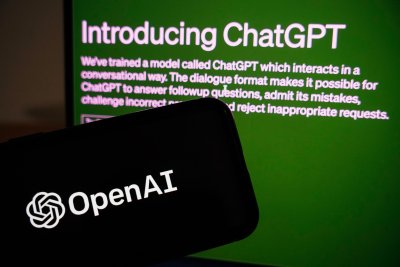OpenAI announces new AI-powered Atlas browser

1 of 3 | An introduction page of ChatGPT is pictured in 2023. On Tuesday, Open AI unveiled an early version of its new AI-powered ChatGPT Atlas web browser. File Photo by Wu Hao/EPA
Oct. 21 (UPI) — OpenAI unveiled the early version of its AI-powered ChatGPT Atlas web browser on Tuesday, offering many powerful features that seek to interlace the company’s technology into daily internet use.
The new browser is currently only available on macOS, with future versions coming to Windows and mobile devices, according to a post by OpenAI. While other tech companies, including Microsoft and Google, have incorporated AI into their products, OpenAI called Atlas a step closer “to a true super-assistant” that follows users across the web.
“It’s a new kind of browser for the next era of the web,” OpenAI CEO Sam Altman said in a video, where staff demonstrated how Atlas could be used to complete a grocery order, help project management at work and other tasks.
Atlas will draw on user’s previous interactions with the powerful chat bot, meaning it will have a back-and-forth deeper than Google’s box of AI-generated results that accompanies web searches.
If Atlas is popular, it could be “a serious threat to Google’s dominance,” according to TechCrunch. It could also provide valuable information to targeted advertising should OpenAI change its business model. But the tech website concluded that “It’s still early days for Atlas and a lot will depend on the product itself — and whether users really want what OpenAI is offering here.”
Users of the paid version of ChatGPT can use “agent” mode that allows Atlas to perform some tasks independently.
“Despite all of the power and awesome capabilities that you get with sharing your browser with ChatGPT that also poses an entirely new set of risks,” OpenAI’s Pranav Vishnu said during the video announcing Atlas. He said that there are safeguards that keep the agent operating on Atlas tabs and prevents it from accessing users’ computer files.
Marketing experts have warned that AI could soon be used to make purchases for consumers using their data. Users of Atlas can limit what data is saved, according to an OpenAI page explaining user controls.
